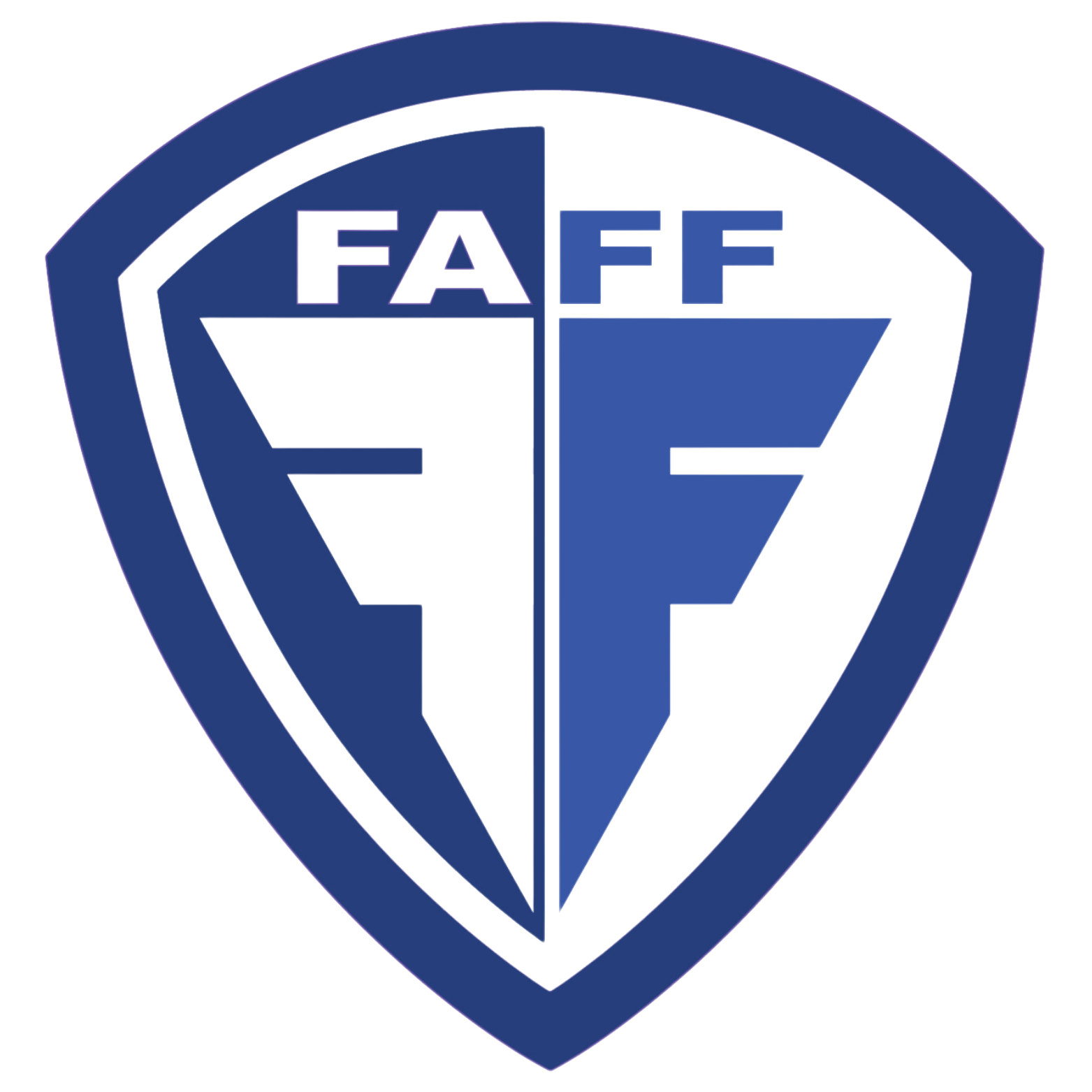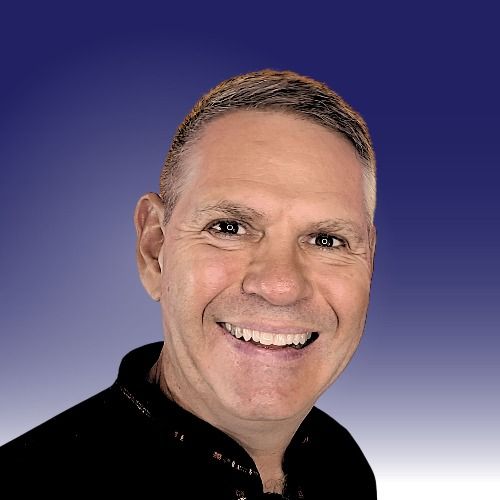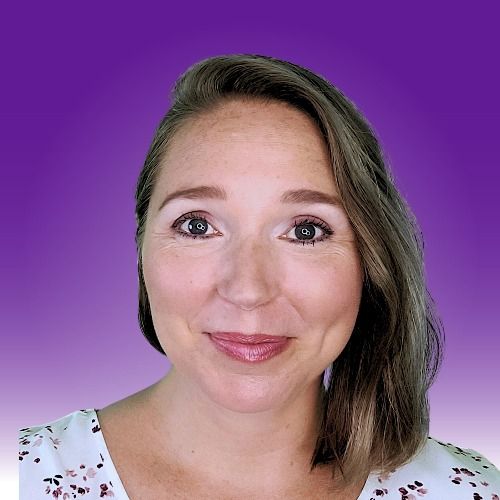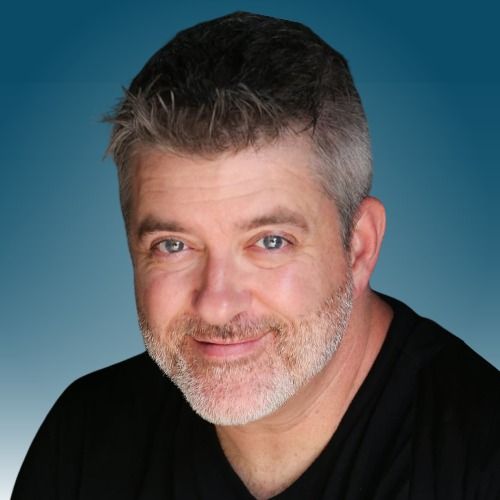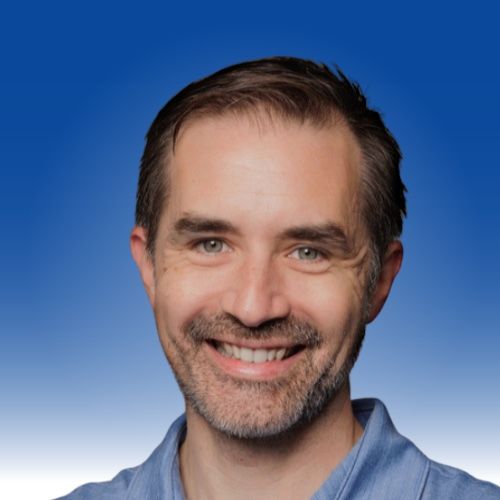Episode 53
Building a Film Scoring Career with Zachary Horner
Episode 53 - Building a Film Scoring Career with Zachary Horner
In this episode of the Faith and Family Filmmakers podcast, Hosts Jaclyn and Geoffrey Whitt interview Zachary Horner, an American film composer known for his work on projects like 'Disciples in the Moonlight' and 'The Thorn'. Horner discusses his musical journey from early childhood, his education, and his work on various projects including promotional videos, short films, documentaries, and feature-length films. He shares insights on starting small, building relationships, and continually learning as a composer. Zachary also discusses the difference between working with live instruments versus samples. The episode provides valuable advice for aspiring composers, emphasizing the significance of perseverance, humility, and collaboration.
- Introduction and Welcome
- Zachary's Musical Journey
- From Choir Boy to Film Composer
- Musicianship
- Live Instruments vs. Samples
- Notable Projects and Experiences
- Advice for Aspiring Composers
Zachary Horner is an American Composer, Orchestrator, and Producer and has been working in the industry for over a decade. His musical education began early in childhood as a choirboy and enrolled in private music lessons. He has a Master of Arts in Orchestration for Film from ThinkSpace Education (University of Chichester).
In addition to avoiding celery at all costs, Zachary has been hard at work over the years creating timeless melodies, alarmingly realistic sampled mock-ups, and rich orchestration for hundreds of projects ranging from promotional to feature films, documentaries to apps, producing artists to short films.
Zachary on Instagram: https://www.instagram.com/zachary_horner/
Zachary on Facebook: https://www.facebook.com/zachary.horner.composer
Zachary on IMDb: https://www.imdb.com/name/nm8066578/
Faith and Family Summer Screenwriting Bootcamp: https://www.faffassociation.com/screenwriting-bootcamp
The Faith & Family Filmmakers podcast helps filmmakers who share a Christian worldview stay in touch, informed, and inspired. Releasing new episodes every week, we interview experts from varying fields of filmmaking; from screenwriters, actors, directors, and producers, to film scorers, talent agents, and distributors.
It is produced and hosted by Geoffrey Whitt and Jaclyn Whitt , and is brought to you by the Faith & Family Filmmakers Association
Support Faith & Family Filmmakers Our mission is to help filmmakers who share a Christian Worldview stay in touch, informed, and inspired. If you would like to assist with the costs of producing this podcast, you can help by leaving a tip.
Enter the Faith & Family Screenwriting Awards festival
Faith and Family Screenwriting Academy: https://www.faffassociation.com/
Script Notes and Coaching: https://www.faffassociation.com/script-services
Copyright 2024 Ivan Ann Productions
Transcript
Welcome to the Faith and Family Filmmakers Podcast.
Geoff:I'm Geoff.
Jaclyn:And I'm Jaclyn.
Geoff:We're glad you're with us today.
Geoff:And it's kind of fun.
Geoff:We've got, something different today.
Geoff:First for us on the podcast, we have a film composer.
Jaclyn:Yes, and, uh, I'm actually really looking forward to it because, as some of you may already know, I have a background in music and, so I, I always love talking to musicians.
Jaclyn:It's like, I feel like it's a world that I know and I understand and I love.
Geoff:Yeah, we both, have been musicians and songwriters.
Geoff:So, uh, talking to a composer is going to be fun.
Geoff:Let's get into it.
Geoff:front
Jaclyn:so we've got Zachary Horner with us today.
Jaclyn:Zachary Horner is an American composer, orchestrator, and producer who has been working in the industry for over a decade.
Jaclyn:His musical education began in early childhood as a choir boy and private music lessons.
Jaclyn:He now has a Master of Arts in orchestration for film from Think Space Education, where he studied under the tutelage of Milton Nelson, Chris McGuire, and David Denyer.
Jaclyn:Zachary Horner.
Jaclyn:In addition to avoiding celery at all costs, Zachary has worked hard over the years creating timeless melodies, alarmingly realistic sampled mock ups, and rich orchestration for hundreds of projects.
Jaclyn:His portfolio includes promotional videos, short films, documentaries, apps, records, and feature length films, including the thorn, uncharted, the Hidden Kingdom and disciples in the moonlight.
Geoff:Welcome, Zachary.
Geoff:Oh,
Jaclyn:have the amount of experience that you have.
Jaclyn:How old are you?
Zachary:all right.
Zachary:We'll, we'll, we'll play this a little further.
Zachary:How old do you think I am?
Jaclyn:Okay, my guess is I think you look like maybe late 20s.
Zachary:Okay.
Zachary:Yeah, I am
Jaclyn:Or maybe 30.
Jaclyn:Yeah.
Jaclyn:Okay.
Jaclyn:Okay.
Jaclyn:Pt1a Geoff - Zachary Horner: 28.
Jaclyn:You didn't wait.
Jaclyn:I was gonna say 28.
Zachary:Gotcha.
Zachary:Yep.
Jaclyn:But it seems like a lot of experience, you know, to be 28 So how, how did you start?
Jaclyn:When did you start learning music?
Zachary:so I come from a lineage of musicians.
Zachary:So I've had Music in my blood for a long time.
Zachary:and as a, as a boy, I just, I was around music all the time.
Zachary:So it was really natural for me to just take interest in it.
Zachary:And, I had like private piano lessons and such at a really young age.
Zachary:And then pretty early on, uh, enrolled in the choir and, stayed in a choir through, I graduated until I graduated high school.
Zachary:And, uh, that was really formative in those years.
Zachary:I just loved music and, uh, honestly, about the time that I could reach up to actually grab the keys on the piano, I was, uh, I was writing music, complete with sound effects.
Zachary:I mean, I, I even had the little, I think my first one involved somehow like a wolf or something like that.
Zachary:There was a howl and, um.
Zachary:Ever since then, I've just always kind of naturally picked up writing, and, by roughly 10 to 12, I was writing a number of solo piano tracks, and Eventually got my hands on some recording software and a computer and, just started figuring out how to do all that.
Zachary:Lots of YouTube and, and things of that nature.
Zachary:And, um, by like roughly 12, 14, I had, produced an album for myself of solo tracks, uh, solo piano tracks.
Zachary:And at the time it was just mostly for friends and family.
Zachary:Uh, and around, I think 15, I had a friend at church.
Zachary:Wanting to do a stop motion Lego film.
Zachary:And he said, Hey, I know you have a piano album.
Zachary:Can I throw some piano tracks from there, on the film?
Zachary:And I said, sure.
Zachary:And it just kind of got my wheels turning.
Zachary:I was like, Hmm, film composing.
Zachary:I wonder what that entails.
Zachary:And so.
Zachary:From then on, it just kind of piqued my interest, and I kept pursuing it, and, uh, the Lord just kind of kept opening a door in front of me, and I kept taking it, and here I am.
Zachary:So I did technically start around 15, I guess, uh, 15 or 16, and, started attending festivals and meeting people, and, um, I started, I guess, more professionally working around 17 or 18, just kind of short films here and there as, young students and young, composers really ought to, uh, gain experience with, with people that are just starting out as well.
Zachary:And, from then on, I just kind of continued meeting people and continued getting,
Zachary:bigger
Jaclyn:And winning awards
Jaclyn:and,
Zachary:yeah.
Zachary:well, some of the films I've been on have won awards.
Zachary:I've actually only ever won one music, specific award, and I'm very grateful for it.
Zachary:So, yeah.
Jaclyn:Well, you know, I think sometimes when the music works, people forget about it.
Jaclyn:You know, it's when the music's not working that people are like, what, what, what's with the music?
Zachary:Yep, exactly,
Jaclyn:when the music works, it's almost like you want to be invisible because if people don't see you, that means you did your job right.
Jaclyn:When it comes to sound, that's, you know, you did your job right when nobody says anything.
Jaclyn:Mm
Zachary:Exactly.
Zachary:Exactly.
Zachary:Yep.
Zachary:that's perfectly right.
Jaclyn:So then, well, I mean, you, you basically launched into your dream job straight out of high school.
Jaclyn:So is there actually, uh, is this what you want to do or do you have more aspirations that you want to pursue as well?
Zachary:Uh, no, this is really, this is what I want to do.
Zachary:This is what I want to grow old doing.
Zachary:I mean, uh, I've even talked about how, music composers can retire.
Zachary:but it's one of those professions where I mean, it's not necessarily strenuous work, physically.
Zachary:So even as I grow older, I'd love to continue writing for as long as I'm able.
Zachary:but yeah, this is, what I would dream of, for the rest of my life.
Zachary:I mean, not to say that there aren't other things that I'd love to pursue, you know, off to the side, I guess, but, uh, music is definitely my main focus.
Jaclyn:And so when you were growing up, did you learn multiple instruments or do you pretty much just stick with piano?
Zachary:No, I did learn multiple instruments.
Zachary:I tell people I can play any instrument in the world, but that's just because, uh, I, I work with samples, in my software.
Zachary:So, um, but live instruments, I can play a number of instruments.
Zachary:So yeah, that wasn't just piano.
Jaclyn:Do you play in bands and stuff, like even now?
Zachary:No, not currently.
Zachary:Uh, I did play in a youth band, at church there for a little while.
Zachary:and I guess I'm very accustomed to playing in a band because that's my family's lineage.
Zachary:My grandfather was in a band.
Zachary:My dad played with him as well.
Zachary:And so, um, very accustomed to the band.
Zachary:Format, but I actually don't currently play in any bands.
Jaclyn:And okay, I'm curious if you miss it.
Jaclyn:And the reason why I ask is because you and I have actually a very similar story.
Jaclyn:Like I started playing piano when I was very young, also got into playing multiple instruments throughout my childhood.
Jaclyn:Um, and I actually had wanted to pursue film scoring when I was in high school.
Jaclyn:That like my dream at the time.
Jaclyn:Life took a different direction and you know, that's cool.
Jaclyn:And I'm happy with where I'm at now.
Jaclyn:Um, but I noticed that.
Jaclyn:Like when I had gotten away from playing in a band, like actually playing instruments and I started working with samples because I did do some, you know, production, audio production and music production for a little while, it, it was different.
Jaclyn:I mean, I loved it, but it was different.
Jaclyn:And so it was a long time from when I stopped playing in a band to now.
Jaclyn:to recently I started playing in a band, the worship team at church.
Jaclyn:And I mean, I'm playing the cajon and so
Jaclyn:it's, it, it's fun.
Jaclyn:It's fun.
Jaclyn:Um, but I grew up playing mostly brass instruments.
Jaclyn:And so, but like just being part of a band though, like I just, I didn't realize how much I missed it until I was back in it.
Jaclyn:Have you noticed anything like that?
Zachary:There is a big difference in working with samples versus working with live instruments and being in an environment with, with live instruments.
Zachary:Um, it's something that all composers really Should strive to keep connected with and, even if it's just going to local symphony, that's, it's really, really important, but I do miss working with live instruments more often.
Zachary:Um, I do wish that, that, you know, that was on the table for me, but in today's day and age, the samples are so highly pushed that that's usually how jobs go.
Zachary:But, you know, I'm, I'm, just waiting on.
Zachary:Big projects where I can, you know, work with a live orchestra again and just get around all of that synergy when, when you're in a room with a bunch of musicians, it's just, the creative juices just flow.
Zachary:It just, it's very invigorating.
Jaclyn:And when you, when you have like that, um, it's like each musician brings their own skill, their own passion, you know, and, and then, when you can all work together to create one thing, like that collaboration.
Jaclyn:I mean, film is like that, right?
Jaclyn:When you have so many different pieces all coming together.
Jaclyn:Um, what I like about music is that like playing in a band anyways, is, that it's all at once, you know, in the same room.
Jaclyn:Like everybody's practiced on their own and then they come together and they make it happen.
Jaclyn:so have you actually done film scoring with an orchestra?
Zachary:I have.
Zachary:Um, I feel like I haven't because I've yet to be present live with the recording, but I have done remote sessions.
Jaclyn:Okay.
Zachary:it's still a wonderful experience, but, you know, it doesn't quite feel like it just yet because I've been on the other side of a screen, but,
Jaclyn:Yeah.
Jaclyn:Yeah.
Jaclyn:You can't feel those vibrations right into your gut, you know?
Jaclyn:That's what I loved.
Zachary:yeah, yeah, I've been around it.
Zachary:I mean, I've definitely.
Zachary:Been with orchestras and, uh, like I mentioned, it was in choir and that's, that in itself is just an amazing experience because being in the choir, just as being in an orchestra, you just, you're surrounded physically by sound waves and it's just, it's an amazing feeling.
Jaclyn:Yeah, I guess that's, uh, I understand that for film, working with samples, uh, you get a really clean recording and it's really fast and, uh, you can do it by yourself.
Jaclyn:You don't need to have a ton of people collaborating together.
Jaclyn:And so, you know, things can move faster and, it's more cost effective.
Jaclyn:So I get it.
Jaclyn:but definitely, there, there's There's nothing like that feeling of being in the middle of the sound.
Jaclyn:You know, where it's like all around you and the vibrations are like in your muscles and your bones.
Jaclyn:Like you, you feel the music.
Jaclyn:You don't just, you know, feel the music like you want to move, but you actually, you feel the music.
Jaclyn:Just the
Zachary:your bones.
Jaclyn:Yes, exactly.
Jaclyn:Yeah.
Jaclyn:And that's one thing I had to get used to also when I switched from playing a piano to a keyboard because the keyboard doesn't have that same resonance that an acoustic piano does.
Zachary:Yep.
Geoff:So, Zachary, let's talk about some of the films you've worked on.
Geoff:there's quite a few on your IMDb.
Geoff:Um, tell us about some of the, the ones that stand out.
Zachary:Oh boy.
Zachary:Um, I have had the privilege of working on a number of films over the years.
Zachary:predominantly my, uh, resume consists of a lot of short films and promotionals.
Zachary:Um, but here, uh, recently, thank the Lord, I've had a couple of opportunities for feature films in the last couple of years, been a wonderful experience because, uh, they tell you in, in school and just in, council that, you should really start out as an aspiring composer with short films and with promotionals and getting your feet wet with, smaller projects, but even if they're a Very well made short films.
Zachary:That's even better just because the short film format really allows you to hone in on a lot of valuable skill sets, such as communication with your director, um, you know, learning to work with, you know, other people and learning to find your own voice, learning how to tell a story with your music.
Zachary:And, and also the challenge of telling your story with music in a very short time.
Zachary:it really makes you focus on what is truly valuable in music and, you know, how you want to, Craft your, your score, uh, to communicate a lot in a very short period of time.
Zachary:It's, it's very, it's very effective training, for bigger projects later down the road.
Zachary:Uh, so I've had the privilege of working on quite a few wonderful short films, um, worked with, directors and producers, uh, from all over the United States and even a little bit over the world, uh, a few other people outside of the U S, I guess a couple of big projects recently have been, The Thorn, which I did in, very, very late 22 and the very beginning of 23, and that was a wonderful project to be a part of.
Zachary:It's actually an ongoing passion play that tours the country, and during 2020.
Zachary:Uh, in 2021, they decided to film it, to have, you know, a filmed version of the play as well as their, touring version.
Zachary:And, uh, my long term, mentor and, wonderful friend, Jurgen Beck, was on the project for a number of years.
Zachary:And, when they, uh, came around to filming it.
Zachary:Uh, he recommended me, for filling in some of the music that needed to be done, because they were keeping some of Juergen's tracks, and a couple of other tracks, in the score, and, um, he recommended me for, for finishing out the rest of the score, and, Juergen's just been such a, a vital role in my career.
Zachary:Um, he helped me get started and, guided me along the way.
Zachary:So he's, he's just been invaluable, but, getting me a part of the Thorn was a really, really wonderful, opportunity just because it was a much bigger project than I've worked on before.
Zachary:And, uh, it provided a lot of valuable, experience, uh, in the feature film realm and, I was really proud of the product.
Zachary:I mean, it's, number one, a great project to be a part of just because of, the testimony it is to our Lord and Savior.
Zachary:Um, but it was just a wonderful film as well.
Zachary:Uh, great production value, uh, great acting, great directing, producing.
Zachary:and it was just an honor to be part of it.
Zachary:And so, that was at the beginning of 23 and then kind of overlapping with that one, I guess, and starting shortly thereafter was, Brett Varvel's film, Disciples in the Moonlight.
Zachary:And, uh, we actually just wrapped up on the score on that, uh, just very recently and, uh, more information coming out about that very soon.
Zachary:and that was equally, just a wonderful, wonderful opportunity to be a part of, such a, Wonderful film.
Zachary:Not only again, production value wise, but message wise.
Zachary:And, uh, it's just an honor to be a part of the team and, uh, really, really look forward to where it's going to go and the people it'll reach and impact it'll have on our culture, hopefully.
Geoff:that's kind of the progression of a career, I guess.
Geoff:Starting with smaller projects, excelling and getting opportunities to work on larger ones.
Zachary:yeah.
Zachary:And as far as like recommendations for young composers, that's absolutely, uh, a very tried and true way.
Zachary:I mean, there are unsure other paths and, you know, not to say that other options aren't accessible or.
Zachary:possible, but that is a very tried and true method of, developing your career is just to start small.
Zachary:And I guess a specific piece of advice that I was given, was that, you know, it's wise to try to find students, uh, that are also starting out, but that are specifically aspiring to be in the industry, for a long time, not You know, not just someone that might be trying it out as a hobby, uh, but to find people like that, that you believe have talent and try to connect with them and develop a relationship.
Zachary:And then, you know, as they grow, you grow, uh, as they gain experience, you gain experience and, uh, who knows where those relationships will lead in the future.
Zachary:But, um, you're absolutely right.
Zachary:Starting out with smaller projects and, being patient to You know, pay your dues and, go through the effort, to, you know, put in the time to, to work on those projects and do your best at them, while you're doing them is just really invaluable experience.
Zachary:something that, the Lord laid on my heart from an early age, particularly as I started in the film career, uh, film composing career was that, we are to be faithful with little.
Zachary:Uh, so that we can be faithful with much and I can I can lay my head on my pillow going, or knowing that, you know, while I wasn't perfect at that, I truly did aspire to live that out.
Zachary:And, That's just the best advice I can give, uh, for younger composers.
Zachary:It's just, you know, it's not glamorous doing a bunch of short films.
Zachary:Uh, sometimes it can be, but most of the time it's just good, honest, hard work and, uh, good experience building and relationship building.
Zachary:And, it's worth it though.
Zachary:It's worth it to.
Zachary:to get those kind of projects and, and to do your absolute best at them, um, and, it's hard to deny that some projects, you might find that your music is the best part of the project, and that's not to be prideful at all.
Zachary:But sometimes, you know, you get projects that, you know, You may not necessarily be proud of the film itself, but you can do your best at the music and You know, it's still valuable experience and definitely worth your
Zachary:while.
Jaclyn:that's where integrity comes in, right?
Jaclyn:Like if we pursue a spirit of excellence, like we're responsible for what God has given each one of us.
Jaclyn:And so to choose not to do your best just because somebody else is maybe, you know, Starting out, um, I don't think that that's honoring God with your talent or your skill, you know, like, If I bring the best of what I have to the project, and somebody else brings the best of what they have, regardless of where each of us is at, if we're both bringing our best God is honored.
Jaclyn:and I like what you're saying about, um, you know, starting out small, finding other people who are also aspiring like, this is where you create those opportunities for yourself.
Jaclyn:And then you build your experience so that you can pursue greater opportunities later.
Jaclyn:because it's hard to, get an opportunity.
Jaclyn:I mean, some people might find it, but I would say in general, it's hard to find an opportunity where it's, Like that's the one, you know, that's what I really wanted when you don't have something to prove that you're capable of it.
Jaclyn:And so part of the process of starting small is saying, Hey, look what I can do.
Jaclyn:You know, I'm capable of this and getting experience in different things.
Jaclyn:And I want to get into more of that, in the second half of the interview in the members only portion, because I want to get into, you know, even more Like, do you have a favorite genre, and what kind of software do you use, and things like that.
Jaclyn:So, so before we finish out this part of the interview, do you have anything, any final thoughts you want to offer for our listeners?
Zachary:Um, as far as, uh, just getting started, for aspiring composers, I would absolutely recommend, going to film festivals, uh, meeting young people that are young.
Zachary:Yeah.
Zachary:Yeah.
Zachary:getting started themselves and, um, education is great.
Zachary:it's not absolutely vital that you have a piece of paper to prove that you have a degree in music.
Zachary:but the education nonetheless is vital.
Zachary:you should be, vigilant about ingesting really good music, uh, really good.
Zachary:case studies on how to write music and, you know, uh, studying the classics.
Zachary:I grew up in classical music and, you know, just anything that you can do to improve your skill.
Zachary:learn how masters have done it and glean from them.
Zachary:There's nothing new under the sun.
Zachary:And with that in mind it's important that we ingest and just process masterful works so that we can inspire ourselves to write better music and to do a better job.
Zachary:Because, you know, at the end of the day, we should be, as believers, reflecting God's, majesty in all that we say and do, and That's just not something that I want to do haphazardly with my music.
Zachary:And I think some of the best ways to do that is just to, constantly be learning and constantly be humble, to recognize that, you know, you're not the, best and the greatest writer, um, you probably never will be, I'm sure even the best of writers that we, we consider to be the best of writers nowadays.
Zachary:Still wish they could learn something new to make themselves better.
Zachary:And so, not in a, uh, beating oneself up way, but in a humble way to recognize that, you know, I can improve.
Zachary:My skill, um, is valuable and just, being vigilant to learn.
Zachary:To develop your communication skills, with others is just really valuable.
Zachary:Um, and then of course, being willing to put in hard work for smaller projects and work yourself up with experiences is great too.
Geoff:Great advice.
Jaclyn:Yeah, perfect.
Jaclyn:Thank you.
Jaclyn:I look forward to speaking with you in the next interview.
